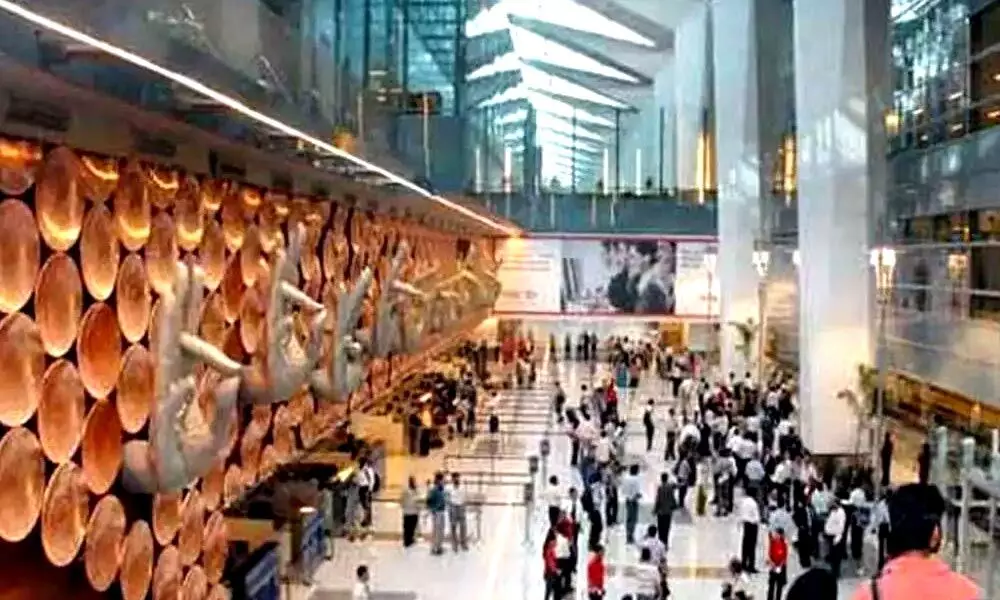Airports rally likely to boost travel retail in 2021
People traveling for work during the pandemic have significantly avoided visiting retail stores at airports, thereby impulsive sales of leisure products have taken a hit
image for illustrative purpose

An uptick in international travel post Covid-19 restrictions, travel retailers adopting digital technologies to drive online sales, and promotional activities planned by leading retailers are some of the factors driving the growth of travel retail segment
AIRPORTS Council International (ACI) World and the Duty Free World Council (DFWC) have called for urgent measures to support the recovery of the international airport industry. The travel retail market was valued at $74.31 billion in 2019 and for the last two decades, the travel retail market has grown constantly.
The global travel retail sector is not limited to only airports; it also includes cruise lines, ferries, and ports. However, an airport still enjoys the pole position in the market and is expected to remain the dominant player in the upcoming years. However, with the onset of the ongoing Covid-19 pandemic and the resulting travel restrictions, some of the major airports witnessed a drop in international passengers by about 90 per cent for the months of March, April, and May 2020. Thereby, retail sales in the global retail market took a significant hit in the first half of 2020.
People traveling for work during the pandemic have significantly avoided visiting retail stores at airports thereby impulsive sales of leisure products have taken a hit
As a result, the travel retail market which was valued at $74.31 billion in 2019 is estimated to reach only $ 33.43 billion in 2020, registering a year-on-year decline of over 55 per cent.
However, with expected relaxations in travel restrictions from the start of 2021, the market can expect a steady increase in retail sales during the forecast period from 2020 to 2028. However, at a conservative growth forecast of about 4.1 per cent during the forecast period, the travel retail market is expected to reach $ 46.11 billion by 2028.
Some of the factors driving this estimated growth include an uptick in international travel post Covid-19 restrictions, travel retailers adopting digital technologies to drive online sales, and promotional activities planned by leading retailers.
A temporary relaxation of travellers' duty-free limits and allowances for selected duty-free products to stimulate sales and consequently help airports generate revenues from their retail concessionaires.
Growing demand for perfumes and cosmetics sub-segment by product category type is likely to propel the market in upcoming years. Airport segment expected to dominate the travel retail market by sales channel throughout the forecast period.
Indian consumers are mapping out their holiday season and shopping plans, but prioritising their well-being comes first as most choose to spend more time at home, reveals Amex Trendex, a trend report from American Express.
A rapid recovery of duty-free and travel retail sales will help provide vital revenues to airports and contribute to the entire aviation industry returning to financial health.
The introduction of duty and tax-free shopping on arrival to level the playing field with those countries which have already introduced duty and tax-free shopping on arrival.
Airport duty-free shopping on arrival is now an established practice on most continents across the globe and is especially prevalent in the Asia-Pacific, Latin America-Caribbean and Middle Eastern regions.
More than 45 countries already have introduced the concept of on-arrival duty-free, including some of the largest aviation markets in the world – including Australia, Brazil, India, Indonesia, the Russian Federation, Thailand, Turkey and the United Arab Emirates (UAE). It is a very popular service with travellers who prefer to delay shopping until they arrive, especially given strict hand luggage policies and environmental concerns on carrying weight onboard aircraft.
Airports recognise the importance of commercial activities as job generators, such as retail and duty-free, and sources to diversify their revenue streams beyond aeronautical sources, but stimulating commerce at airports goes beyond the industry bottom line in the current crisis. In fact, ensuring that the travelling public has greater choice and convenience in their purchases goes hand-in-hand with rebuilding passenger confidence. Most importantly, changes to tax-free shopping also represent a needed lifeline for the millions of jobs in the travel retail space and broader aviation ecosystem – industries which have been most affected by the lockdown and subsequent downturn.
President of the Duty Free World Council, Sarah Branquinho, said DFWC has engaged with policymakers and regulators across the globe in recent months to make clear to them the importance of the industry to tourism, aviation and maritime business models - and indeed the wider economies of most nations.

